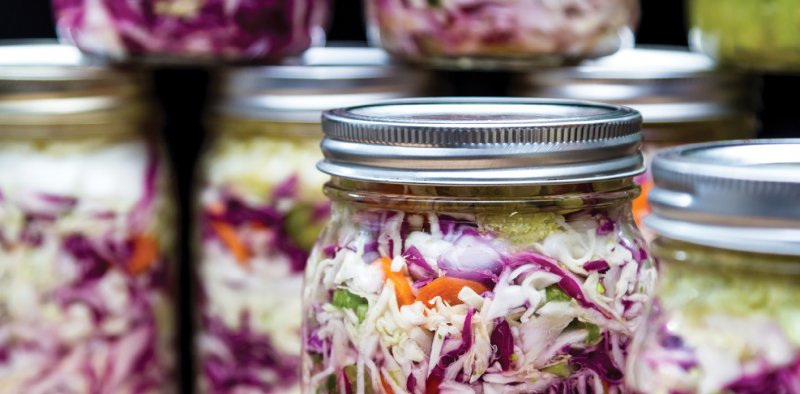Culture Clubs
Culture Clubs: Fermentation groups bubble up in WNC
Fermenting food at home can feel like magic. All it takes is salt, water, and time to transform bland cabbage into tangy sauerkraut, with the help of bacteria that cling to the cabbage leaves. The metabolic process called fermentation uses bacteria, yeasts, or other microorganisms to convert sugars into acids, gases, or alcohols without the presence of air. Beer and wine are fermented, as are low-alcohol beverages like kombucha and dairy products like kefir and yogurt. New fermentation clubs around the region teach devoted followers and curious beginners how to integrate this traditional practice into modern life.
App State Alchemy
Members of the Fermentation Sciences Club at Appalachian State University in Boone get their hands dirty making sauerkraut and sourdough bread, and feed their minds with visits to wineries and breweries. The goal of the club, which welcomes students and the public, is not just crafting fermented food and drinks but also passing on knowledge. www.Facebook.com/ASUFermentationClub
“The sharing of the microbes between community members is important,” says student and club officer Emma Jane Richardson. “It’s a really positive thing to teach younger people.”
Ferment Everything
Fermentation isn’t just for beer and bread. Milk, grains, and even meat are ripe for transformation but take some education to prepare properly. Living Web Farms offers the basics and then some at its Ferment Everything workshop. The nonprofit research and education farm in Mills River encourages people to feel empowered, not intimidated, by the process. Director Patryk Battle says the sold-out classes at the French Broad Food Co-op in Asheville reflect a renewed interest in food preservation. “All of a sudden [interest in fermentation] is exploding here,” he says. “People have a passion for it.” www.livingwebfarms.org
Effervescent Associations
“Fermentation is an interesting ritual; it’s a way to connect with your food that’s incredibly simple,” says Hardie Duncan, founder of the Asheville Fermentation Association, which got its start in August. The group’s first gathering was a meet and greet with author Derek Dellinger, who wrote about his yearlong experiment eating nothing but fermented food. Future activities include “culture exchanges” where people share starters (the microbiological cultures that perform fermentation) to ignite their own kombucha or sourdough projects at home. www.Facebook.com/FermentationAssociation
